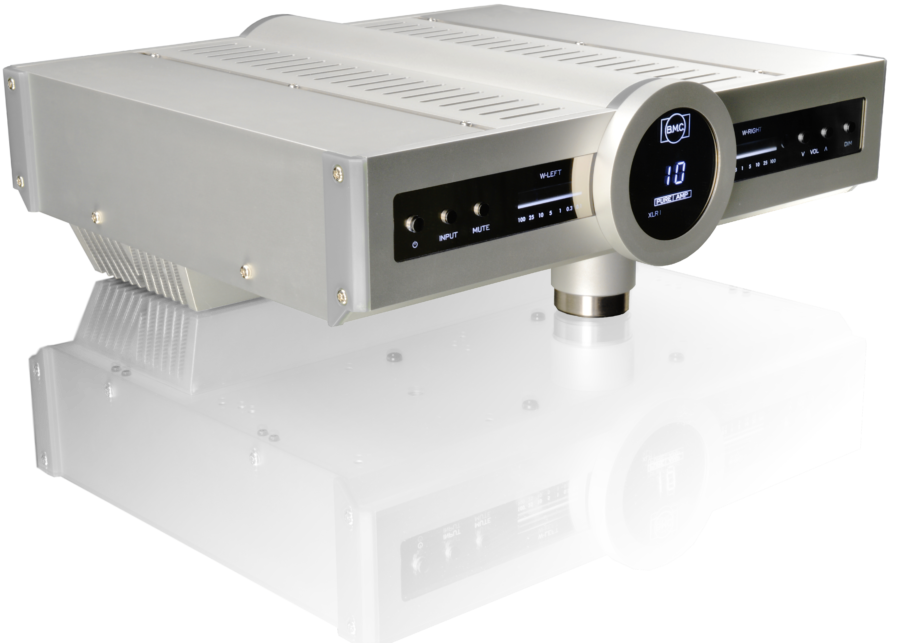Business Technology Degree: A Pathway to Innovation
A business technology degree is more than just a collection of technical skills; it’s a gateway to a future where business acumen meets technological prowess. This degree prepares individuals to […]

A business technology degree is more than just a collection of technical skills; it’s a gateway to a future where business acumen meets technological prowess. This degree prepares individuals to navigate the ever-evolving landscape of technology, equipping them with the knowledge and skills to drive innovation and efficiency in organizations.
From understanding the intricate workings of software development to leveraging data analytics for strategic decision-making, business technology degrees offer a comprehensive education that bridges the gap between business and technology. Graduates emerge as versatile professionals capable of adapting to the dynamic demands of the digital age.
Career Paths and Job Prospects
A degree in business technology opens doors to a wide array of career paths, offering a blend of business acumen and technical skills highly sought after in today’s digital landscape.
Career Paths for Business Technology Graduates
Business technology graduates possess a unique combination of skills that makes them highly employable across various industries. They can pursue diverse career paths, ranging from technical roles to management positions.
- Information Technology (IT) Specialist: This role involves implementing, maintaining, and troubleshooting computer systems, networks, and software. Graduates with a business technology background are well-equipped to understand the business context of IT solutions and contribute to strategic decision-making.
- Business Analyst: Business analysts bridge the gap between business needs and technology solutions. They gather requirements, analyze data, and propose solutions to improve business processes and efficiency.
- Project Manager: Project managers oversee the planning, execution, and completion of technology-related projects. Business technology graduates bring a unique perspective to project management, ensuring alignment with business objectives.
- Data Analyst: Data analysts extract, analyze, and interpret data to identify trends and insights. They use their business knowledge to translate data into actionable information that drives strategic decisions.
- Software Developer: Software developers design, build, and maintain software applications. Business technology graduates with programming skills can contribute to the development of solutions that meet specific business needs.
- Cybersecurity Analyst: Cybersecurity analysts protect computer systems and networks from cyber threats. They use their understanding of technology and business processes to identify vulnerabilities and implement security measures.
- Management Consultant: Management consultants advise organizations on how to improve their business processes, technology infrastructure, and overall performance. Business technology graduates can leverage their technical skills and business knowledge to provide valuable insights.
Industry Trends and Job Market Demand
The demand for business technology professionals is rapidly growing, driven by the increasing reliance on technology across industries. Companies are seeking individuals with the skills to navigate the complexities of digital transformation and leverage technology to gain a competitive edge.
- Digital Transformation: The shift towards digital platforms, online services, and data-driven decision-making is creating a surge in demand for business technology professionals who can lead and implement these changes.
- Cloud Computing: The adoption of cloud computing services is accelerating, creating opportunities for professionals with expertise in cloud infrastructure, security, and application development.
- Data Analytics: The ability to analyze vast amounts of data to extract valuable insights is becoming increasingly critical for businesses. Data analysts, data scientists, and business intelligence professionals are in high demand.
- Artificial Intelligence (AI) and Machine Learning (ML): AI and ML are transforming industries, creating opportunities for professionals with expertise in these emerging technologies.
- Cybersecurity: The growing threat of cyberattacks is driving the need for cybersecurity professionals to protect sensitive data and systems.
Salary Potential and Career Growth Opportunities
The salary potential for business technology professionals is competitive, reflecting the high demand for their skills.
- Entry-Level Salaries: Entry-level positions in business technology typically offer salaries ranging from $50,000 to $75,000 per year, depending on location, industry, and specific role.
- Experienced Professionals: Experienced professionals with specialized skills and leadership experience can earn significantly higher salaries, often exceeding $100,000 per year.
- Career Growth Opportunities: The field of business technology offers excellent career growth opportunities. Professionals can advance into leadership roles, specialize in emerging technologies, or pursue entrepreneurial ventures.
Skills and Competencies: Business Technology Degree
A business technology degree equips you with a diverse set of skills that are highly sought after in today’s digital landscape. The program focuses on both technical and soft skills, preparing you for a wide range of roles within the business technology field.
Technical Skills
Technical skills are the foundation of any business technology career. These skills involve the ability to understand, implement, and troubleshoot various technologies.
- Programming Languages: Proficiency in programming languages such as Python, Java, C++, and JavaScript is essential for developing software applications, automating tasks, and analyzing data.
- Database Management: Understanding database concepts, SQL queries, and database administration is crucial for managing and retrieving data efficiently.
- Networking and Cybersecurity: Knowledge of network protocols, security principles, and cybersecurity best practices is essential for ensuring data integrity and network stability.
- Cloud Computing: Familiarity with cloud platforms like AWS, Azure, and Google Cloud is increasingly important for managing and deploying applications in the cloud.
- Data Analytics: Skills in data analysis, visualization, and statistical methods are essential for extracting insights from data and making data-driven decisions.
Soft Skills
Soft skills, often referred to as interpersonal skills, are equally important for success in the business technology field. These skills enable effective communication, collaboration, and problem-solving within teams.
- Communication: Clear and concise communication is essential for conveying technical information to both technical and non-technical audiences.
- Problem-Solving: The ability to identify, analyze, and solve technical problems effectively is crucial for troubleshooting issues and finding solutions.
- Critical Thinking: Critical thinking skills are vital for evaluating information, making informed decisions, and developing innovative solutions.
- Teamwork: Collaboration and teamwork are essential for working effectively in a dynamic and complex technological environment.
- Adaptability: The business technology field is constantly evolving, so adaptability and the ability to learn new technologies are crucial for staying ahead of the curve.
Skills and their Relevance to Business Technology Roles, Business technology degree
The following table showcases how specific skills are relevant to various business technology roles:
| Skill | Software Developer | Data Analyst | Network Engineer | Cybersecurity Analyst |
|---|---|---|---|---|
| Programming Languages | High | Medium | Low | Medium |
| Database Management | Medium | High | Low | Medium |
| Networking | Low | Low | High | High |
| Cloud Computing | High | Medium | Medium | Medium |
| Data Analytics | Medium | High | Low | Medium |
| Communication | Medium | Medium | Medium | Medium |
| Problem-Solving | High | High | High | High |
| Critical Thinking | High | High | High | High |
| Teamwork | Medium | Medium | Medium | Medium |
| Adaptability | High | High | High | High |
Technology Trends and Future Implications
The business technology landscape is constantly evolving, driven by rapid advancements in technology. Understanding these trends is crucial for business technology professionals to navigate the future of their careers and contribute effectively to organizational success.
Emerging Technologies Impacting Business Technology
The emergence of new technologies is fundamentally changing the way businesses operate. Here are some of the key technologies impacting the business technology landscape:
- Artificial Intelligence (AI): AI is transforming industries by automating tasks, improving decision-making, and personalizing customer experiences. Examples include chatbots for customer service, predictive analytics for risk management, and machine learning for fraud detection.
- Cloud Computing: Cloud computing provides on-demand access to computing resources, such as servers, storage, and software, over the internet. This enables businesses to scale their operations efficiently and reduce IT infrastructure costs. Examples include Amazon Web Services (AWS), Microsoft Azure, and Google Cloud Platform (GCP).
- Internet of Things (IoT): The IoT connects physical devices to the internet, enabling data collection and remote monitoring. This technology is transforming industries such as manufacturing, healthcare, and transportation. Examples include smart home devices, connected vehicles, and industrial sensors.
- Blockchain: Blockchain is a distributed ledger technology that provides a secure and transparent way to record transactions. It is being used to enhance security, transparency, and efficiency in various industries, including finance, supply chain management, and healthcare.
- Cybersecurity: Cybersecurity is becoming increasingly important as businesses rely more on technology. Business technology professionals need to stay ahead of evolving threats and implement robust security measures to protect sensitive data and systems.
Future Trends and Implications for Business Technology Careers
These emerging technologies are shaping the future of business technology careers. Here are some key trends and their implications:
- Increased Demand for Specialized Skills: The rapid adoption of new technologies is creating a high demand for professionals with specialized skills in areas such as AI, cloud computing, cybersecurity, and data analytics.
- Automation and Job Displacement: Automation driven by AI and other technologies is expected to automate certain tasks, potentially leading to job displacement in some areas. However, it is also creating new opportunities in fields such as AI development, data science, and cybersecurity.
- Focus on Digital Transformation: Businesses are increasingly focusing on digital transformation, which involves integrating technology into all aspects of their operations. This trend is creating opportunities for business technology professionals to play a critical role in shaping the future of their organizations.
- Importance of Adaptability and Continuous Learning: The rapid pace of technological change requires business technology professionals to be adaptable and embrace continuous learning. They need to stay updated on the latest technologies and trends to remain competitive in the job market.
Adapting to Technological Changes
To thrive in the evolving business technology landscape, professionals need to:
- Embrace Continuous Learning: Stay updated on the latest technologies and trends through online courses, certifications, and industry events.
- Develop In-Demand Skills: Focus on developing skills in areas such as AI, cloud computing, cybersecurity, and data analytics.
- Network and Collaborate: Build relationships with other professionals in the field and collaborate on projects to gain experience and expand your knowledge.
- Be Adaptable and Flexible: Embrace change and be willing to learn new technologies and adapt to new roles and responsibilities.
Final Thoughts

In a world where technology is constantly reshaping industries, a business technology degree stands as a valuable asset. By understanding both the business and technical aspects of technology, graduates are empowered to lead the way in digital transformation, creating innovative solutions and driving organizational success. Whether they choose to pursue careers in software development, data analysis, or cybersecurity, business technology graduates are well-equipped to shape the future of business.
A business technology degree equips you with the skills to analyze and optimize business processes, often involving the integration of technology. One area where technology plays a crucial role is in the vending machine industry, with companies like USA Technologies leading the way in smart vending solutions.
Understanding the technological advancements in this industry, such as cashless payment systems and remote monitoring, can provide valuable insights for those pursuing a career in business technology.









